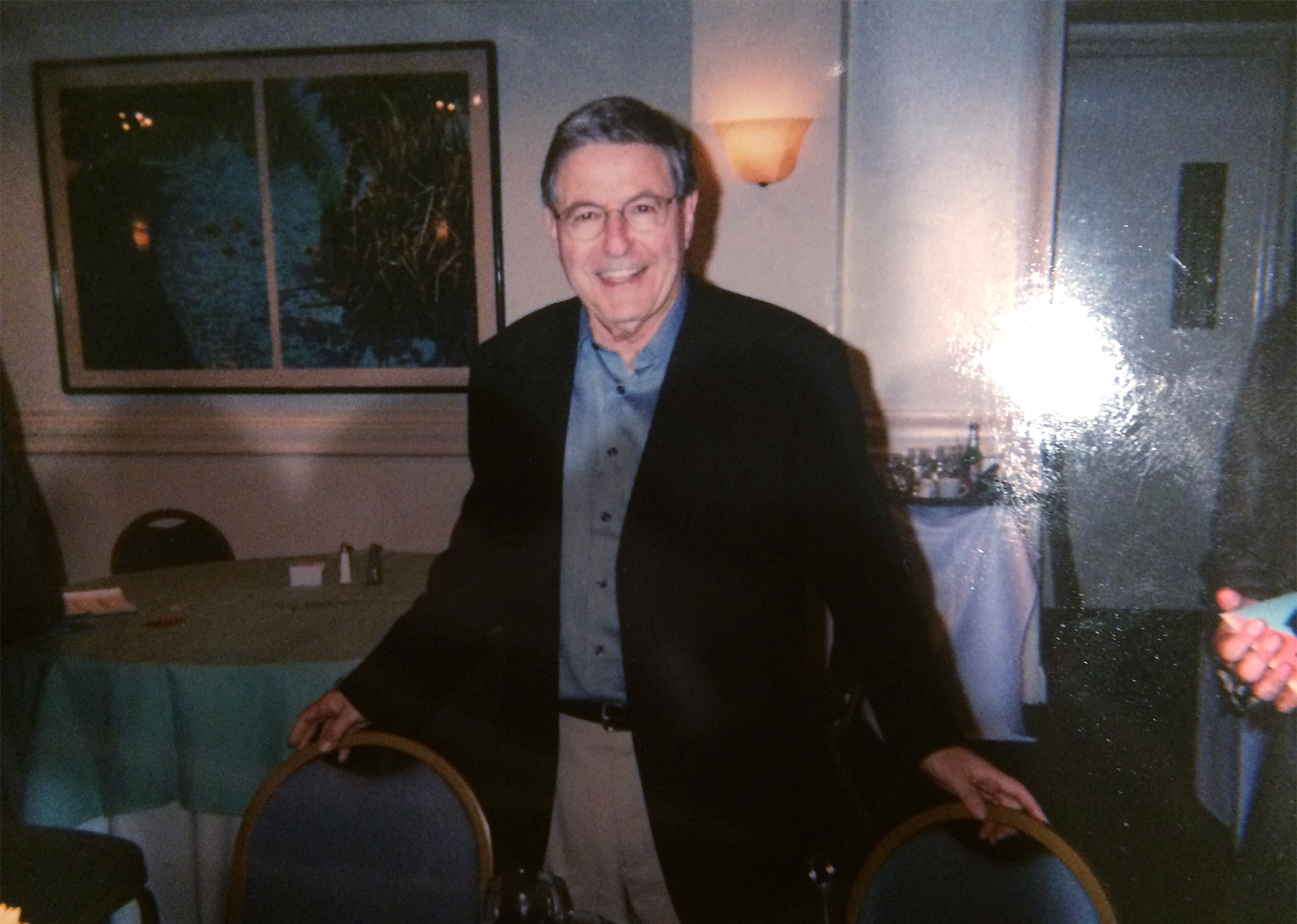Medical school alumnus and professor emeritus dies at age 87

Ronald Reisner, a UCLA alumnus and professor emeritus of medicine/dermatology at the UCLA Medical School, died from Alzheimer’s disease Jan. 13. He was 87. (Courtesy of David Reisner)
By Megan Daley
Jan. 21, 2017 12:55 p.m.
Ronald Reisner rarely missed a basketball game coached by John Wooden. He cheered the team on with his family and when Wooden’s games were over, his support of UCLA continued for decades in the medical school.
Reisner, a UCLA alumnus and professor emeritus of medicine/dermatology at the David Geffen School of Medicine at UCLA, died after a 15-year struggle with Alzheimer’s disease Jan. 13. He was 87.
He acted as a mentor to many medical students and residents, and helped advance the field of dermatology through his studies of the causes and prevention of acne.
He completed his bachelor of arts, doctor of medicine degree, medical internship and residency all at UCLA. He was part of the medical school’s second-ever graduating class in 1956. Reisner then served as a professor of dermatology there for 32 years and was also chief of the division of dermatology for 19 years concurrently.
Born in Buffalo, New York, Reisner moved to California when he was a child and spent the rest of his life in Los Angeles, according to the Los Angeles Times.
He remained at UCLA for decades because he liked the environment and the people, said David Reisner, Ronald Reisner’s son.
“He was a UCLA guy,” David Reisner said. “No question.”
Ronald Reisner authored more than 120 academic publications in his field and gave hundreds of presentations internationally, said Robert Modlin, Reisner’s colleague and the current chief of dermatology at the UCLA medical school, in a statement.
One of Reisner’s most noted works was on hormones’ influence on acne, which earned him a membership in the American Dermatological Association, Modlin said. Reisner also helped establish the dermatology residency at UCLA as one of the most prominent in the nation, Modlin added.
Patrice Healey, a dermatologist and one of Reisner’s former mentees, said Reisner was so passionate about his work that he would take half an hour to answer a single question.
As a physician, Reisner was respectful of every patient and would search for the best way to help each individual, Healey added. She said Reisner gained respect from his colleagues with his humility and cooperative nature.
Reisner held faculty meetings in his office and let everyone choose whatever topic they wanted to discuss, Modlin said. Reisner always wanted to hear what others were studying and researching rather than talk about himself, he added.
Reisner was also revered by his students and residents for his engaging and inclusive approach to teaching, Healey said.
“When he interviewed residency applicants, he would go on walks with you,” Healey said. “He would take you to Kerckhoff and ask to buy you a cup of coffee. He put people at ease with that kindness.”
Healey added she thinks Reisner held no pretenses and was always eager to support his residents. She said she remembers a day when one of the residents was on call but had a family emergency and Reisner volunteered to take his call with no hesitation.
Healey said Reisner was also devoted to his family including his wife, two sons, their wives and his grandson.
“He was madly in love with Ellen, his wife,” Healey said. “He couldn’t have been a more doting husband. He was very proud of his boys and supported them in whatever they wanted to do.”
David Reisner said he visited his father’s lab at UCLA so often that he could get around the medical center without getting lost.
His father would also make his travels to conferences a family affair by bringing his wife and children as a short vacation, David Reisner said. Even as a seven-year-old, he would enjoy listening to professional dermatologists present their research papers, he added.
David Reisner said his father lived with Alzheimer’s for years, but maintained a scientific approach to his condition. He added his father was open about his illness and wanted to help others with and without the disease to understand more about it, despite all his own struggles.
Ronald Reisner spoke at conferences and did radio interviews about his condition, David Reisner said. He also volunteered for several drug studies and donated his brain for medical research at UCLA to help advance the study of Alzheimer’s.
David Reisner said his father continued to selflessly support others in and out of the medical community even after his retirement.
“He treated everybody well,” David Reisner said. “That was his style.”


